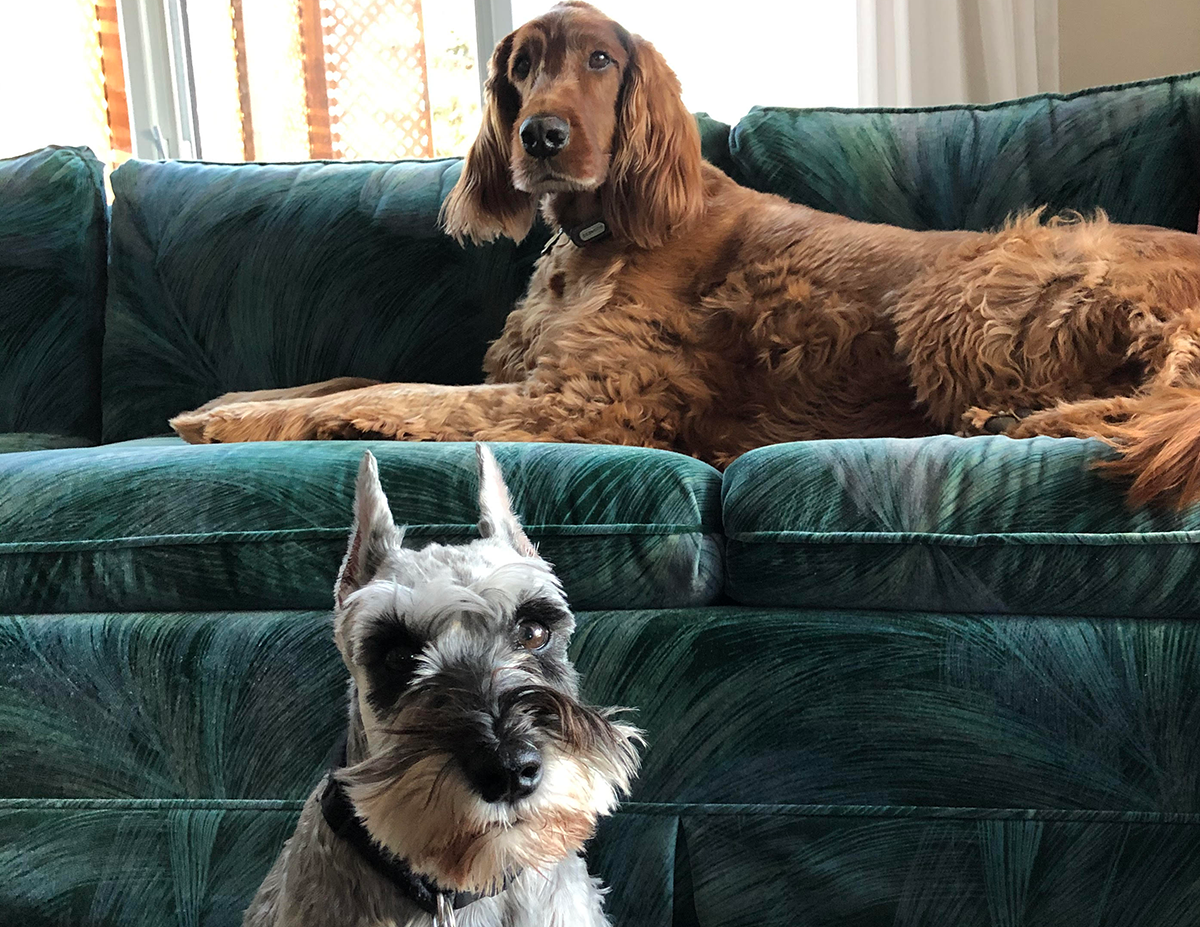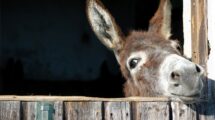
Animal Chatter
By Iris Winston
Animals, like people, need a good match with their human owners
Her eyes sparkle. Her tail wags furiously. Her whole body radiates joy as she jumps up and down with delight. All to celebrate my return home.
It matters little whether it has been hours or minutes since my dog saw me last. She is simply saying as clearly as she can that all is right with the world now that we are together again.
Her enthusiasm and her presence brighten my day, every day. Whether we are walking in the woods, driving about doing the most mundane tasks or I am busy in the kitchen or at the computer, we enjoy each other’s company. Having a loving companion who never judges you, is always delighted just to be near you and enjoys everything you do together is a calming cocoon of comfort.
This special kind of companionship is the main reason for having a pet, and for many people that means a dog. Dogs, descendants of various types of wolf, were, after all, the first animals that human beings domesticated at least 15,000 years ago. Some researchers believe that the connection goes back much further to as much as 40,000 years. Regardless of the numbers, the animal-human bond was, and is, of major importance for a fulfilling life.
There are so many reasons for sharing your life with a canine companion. A dog ensures that you are never lonely or alone. You have a daily purpose,
because you are responsible for a living being who needs to be fed, walked, trained, kept healthy and happy and loved. In return, that daily exercise makes you healthier, just as stroking and petting a loved furry animal actually lowers your blood pressure and increases your chance of longevity.
Having a pet of any kind also means taking responsibility for that animal for the rest of its life. With some breeds of dog, that could be 17 years or more (though larger breeds tend to have much shorter lifespans). The commitment to care includes regular veterinary treatment, medication and vaccination. It also includes the possibility of taking out medical insurance and making provision for the animal when you are away, as well as ensuring that you have a fenced yard to keep him safe. Adding a new family member can be costly, so it is important to be fully aware of the financial commitment before becoming a pet owner.
That decision made, and assuming you have decided that your pet is to be a dog, you must determine whether you want to adopt from the local humane society, take in a stray or purchase a dog from a reputable breeder.
You may also decide that, rather than dealing with an energetic, chewy pup, you would prefer to adopt an older dog who needs a home.
The next important decision is choosing the right dog for you, whether he is to be a puppy or an older adult. Begin with temperament and health. For example, a high-energy breed, such as a Yorkshire terrier, a Jack Russell terrier or a Siberian Husky, may be poor choices for older owners who are not able to walk and run as fast or far as the dogs would like. Jack Russells, cute and bright as they are, are notoriously difficult to train, while Huskies tend to be runners and Yorkies are frequently described as feisty and domineering.
In general, when checking out the various descriptions of dog breeds, note the first word. If it is independent, that could be interpreted as a synonym for difficult to train. If it is steady, cheerful or tranquil — as with descriptions of the Papillon, the Irish Water Spaniel or the Sussex Spaniel — life with dogs displaying these personality characteristics could be more peaceful.
Size is not a clear indicator of temperament or exercise requirements. While an Irish Wolfhound would take up a lot of space, the breed does not need an excessive amount of exercise and its personality is described as patient and generous. (Sadly, giant breeds tend to be very short-lived). Highly intelligent breeds, such as the Border Collie, are wonderful when working, but are much harder to deal with when bored. In general, bored dogs re likely to get into trouble and no dog is comfortable when left alone too long.
Health is another major consideration. Such breeds as the sweet-tempered Golden Retriever are prone to hip dysplasia and some forms of cancer, for example. Breeds such as Pugs, Boston Terriers, Bulldogs and Boxers have breathing issues because of their squashed faces and most of them snore — often as loudly as your spouse. Breeding direction has caused King Charles Spaniels to suffer from severe headaches and other neurological issues, while some German Shepherds have been bred to have such sloping backs that they can have trouble walking.
Most of these issues can be avoided by turning to mixed breeds who — my veterinarian daughter assures me — generally have relatively few major health problems.
After temperament and health, some practical aspects, such as selecting a dog that an older owner could pick up if necessary, should be taken into consideration. Families in which anyone suffers from allergies also look for breeds such as Poodles or Schnauzers whose coats and dander cause fewer issues for owners.
But all other considerations and logic aside, the choice often comes down to the instant connection between you and the guy in the cage at the humane society who reaches out with a “please take me” look. And that instant marks the happy beginning of a rewarding relationship for both of you.
Almonte, Ontario writer, Iris Winston, is a former Executive Director of the Canadian Federation of Humane Societies. She has been an animal lover all her life. Her pets have always been important members of her family.






